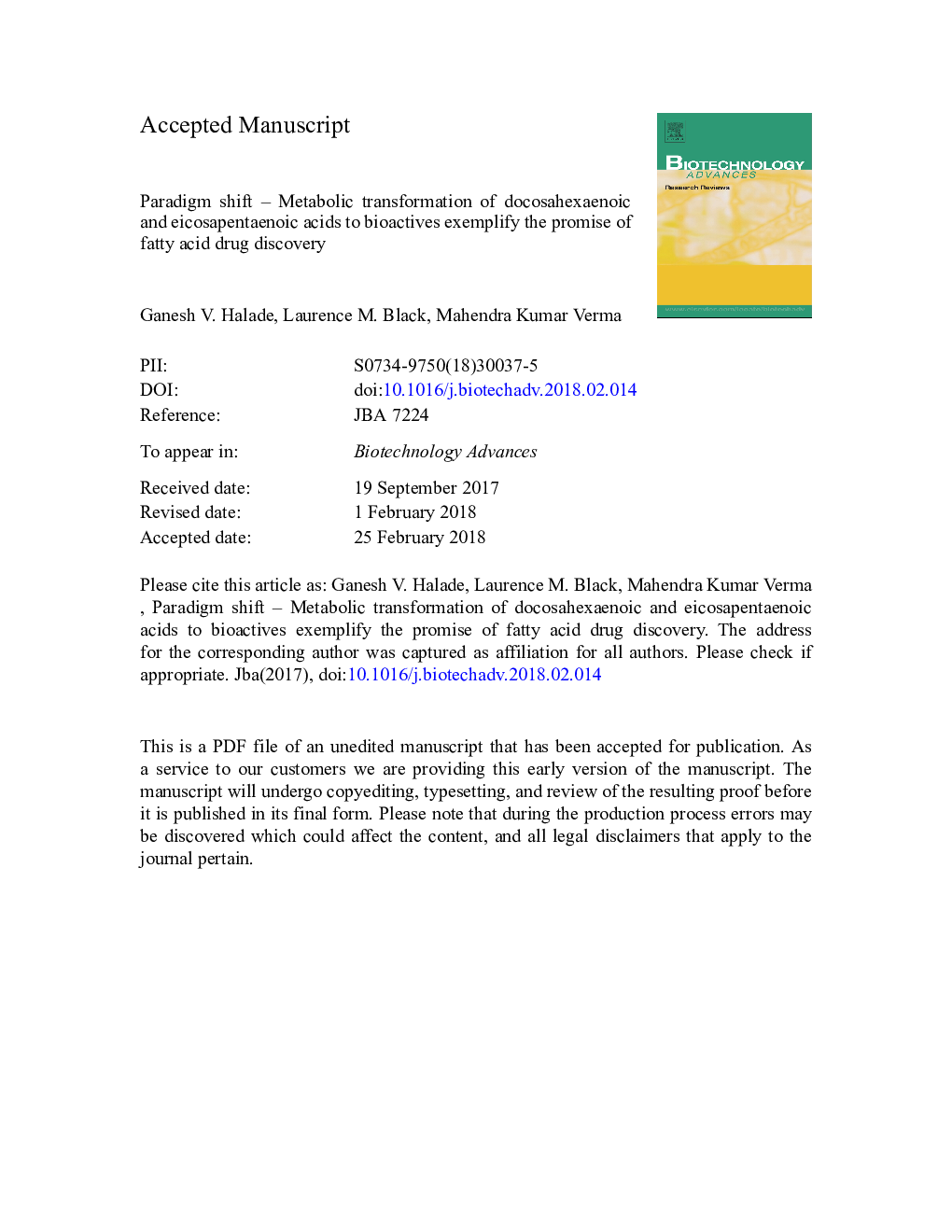| Article ID | Journal | Published Year | Pages | File Type |
|---|---|---|---|---|
| 6486571 | Biotechnology Advances | 2018 | 58 Pages |
Abstract
Fatty acid drug discovery (FADD) is defined as the identification of novel, specialized bioactive mediators that are derived from fatty acids and have precise pharmacological/therapeutic potential. A number of reports indicate that dietary intake of omega-3 fatty acids and limited intake of omega-6 promotes overall health benefits. In 1929, Burr and Burr indicated the significant role of essential fatty acids for survival and functional health of many organs. In reference to specific dietary benefits of differential omega-3 fatty acids, docosahexaenoic and eicosapentaenoic acids (DHA and EPA) are transformed to monohydroxy, dihydroxy, trihydroxy, and other complex mediators during infection, injury, and exercise to resolve inflammation. The presented FADD approach describes the metabolic transformation of DHA and EPA in response to injury, infection, and exercise to govern uncontrolled inflammation. Metabolic transformation of DHA and EPA into a number of pro-resolving molecules exemplifies a novel, inexpensive approach compared to traditional, expensive drug discovery. DHA and EPA have been recommended for prevention of cardiovascular disease since 1970. Therefore, the FADD approach is relevant to cardiovascular disease and resolution of inflammation in many injury models. Future research demands identification of novel action targets, receptors for biomolecules, mechanism(s), and drug-interactions with resolvins in order to maintain homeostasis.
Keywords
Related Topics
Physical Sciences and Engineering
Chemical Engineering
Bioengineering
Authors
Ganesh V. Halade, Laurence M. Black, Mahendra Kumar Verma,
